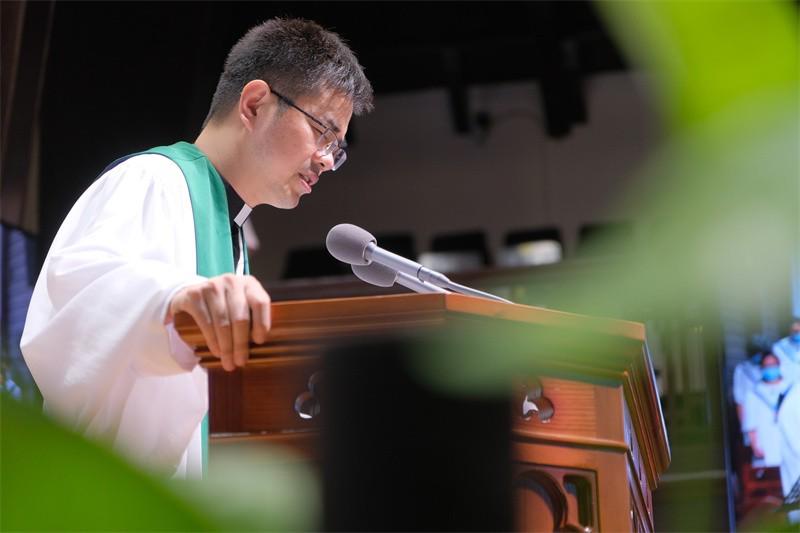There are plenty of ways to measure a healthy church, but the core is whether it is testifying, disseminating, and practicing the gospel truth of Christ. In fact, it is easy for a church to fall into the wrong pathway of legalism, that is, taking the rule-abiding dogma as the main content of the faith. Consequently, the church stipulates strict requirements for believers and finally forms a systematic body of rules.
A few days ago, Pastor X in the south of China said that some churches now emphasized what we wanted to do more than what God has done for us, and emphasized theology more than the gospel itself. They consequently fell into the trap of legalism.
When he talked about it, he often found that some pastors, including himself, had gone into a situation where it was easy to put the law and gospel at both ends of the scale. In the middle, they placed their favorite theology. As a result, they brought the church into a state of “gospel with legalism”.
He recalled that he had fallen into the legalistic style in the process of studying theology, and shared how he got out of legalistic thinking. What he had learned from his experience was that the core of the gospel is Jesus Christ himself who is the focus.
He said that the balance between the law and the gospel was not theology itself, but Jesus Christ.
Pastor X pointed out: “The balance and the primary-secondary relationship between the law and the gospel is very important in faith. The Bible mentions the law, but the gospel is more so. The gospel is the existence of the perfect law. However, if a church takes the rules in the law and forms a system as the focus of its faith, and develops it into a kind of words that only people who abide by a certain set of rules can be Christians or saved, it will distort the true meaning of faith. Christians are called righteous because they believe in Jesus. They are not saved because they keep some artificial laws and regulations.”
He added: “I used to lead a church centered on theological teachings. When the church centers on theological doctrines, Christ becomes a servant of theology, which is a deviation. Theology should have been a servant of Christ. Later, the Lord led our church to train everyone to connect and serve each other with Christ as the center in sermons, so as to transcend the limitations of the belief model dominated by theology and doctrine in the past. In that way the church was completely freed from the bondage brought by legalism.”
In particular, he mentioned: “Although many people say that faith must of course be centered on Christ, they often refuse to put theology in a lower position than Christ and the gospel. If the pastor of a church doesn’t agree with his heart and prove in practice that he takes the gospel of Christ as the core of his faith, he is actually a sectarian. Such a person, even if his temperament is gentle, will have an inspiring debate or even quarrel with others because the other person’s understanding of the doctrine is different from his own.”
One of his reflections is that when the pastor takes theology or a kind of rules and regulations as the core of his faith, the church will become dead, but when the pastor takes Christ and the gospel as the center, the church will regain its vitality.
Citing the changes that he personally experienced in the church, he explained: “When the church is in a legalistic mode of thinking, it will gradually lose its enthusiasm and sense of responsibility in evangelizing. But if the church holds high the gospel of Jesus Christ and understands the truth of love and forgiveness of the cross, the church and believers will become hot in evangelizing.”
He warned that if a church didn’t take the gospel of Christ as the core subject of faith, the church and believers would eventually fall into a trap of self-righteousness due to their adherence to legalism, and eventually, they would be staggered with the church and faith that conform to God’s will.
“When a church takes legalism as the core of its faith, the church is like the Pharisees as if it is pursuing godliness, thinking that it is superior to others, and abiding by rules for example how the Pharisees didn’t eat till they washed their hands, but it is not pleasing to Jesus. In prayer, I was moved and led by the Lord who made me understand the importance of looking at Jesus on the cross. The Holy Spirit made me realize that when we are in a legalistic mode of thinking, we will say that Christians should carry the cross too much, but too little about the truth of Christ himself. If you don’t look at the gospel in this way and overemphasize the legalistic thinking mode, it will hinder the growth of the church and spreading the gospel.”
- Translated by Charlie Li











